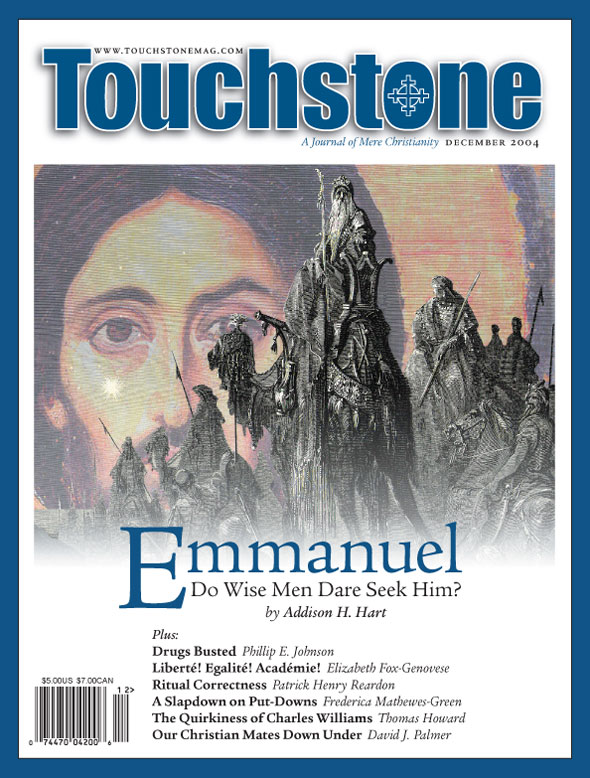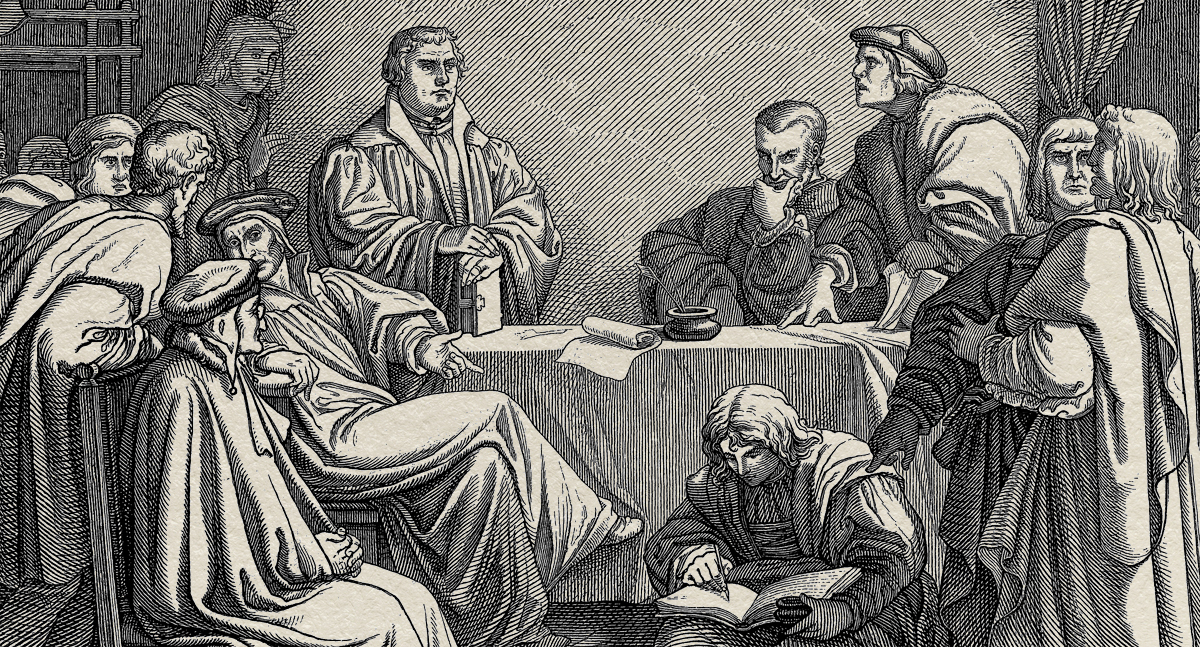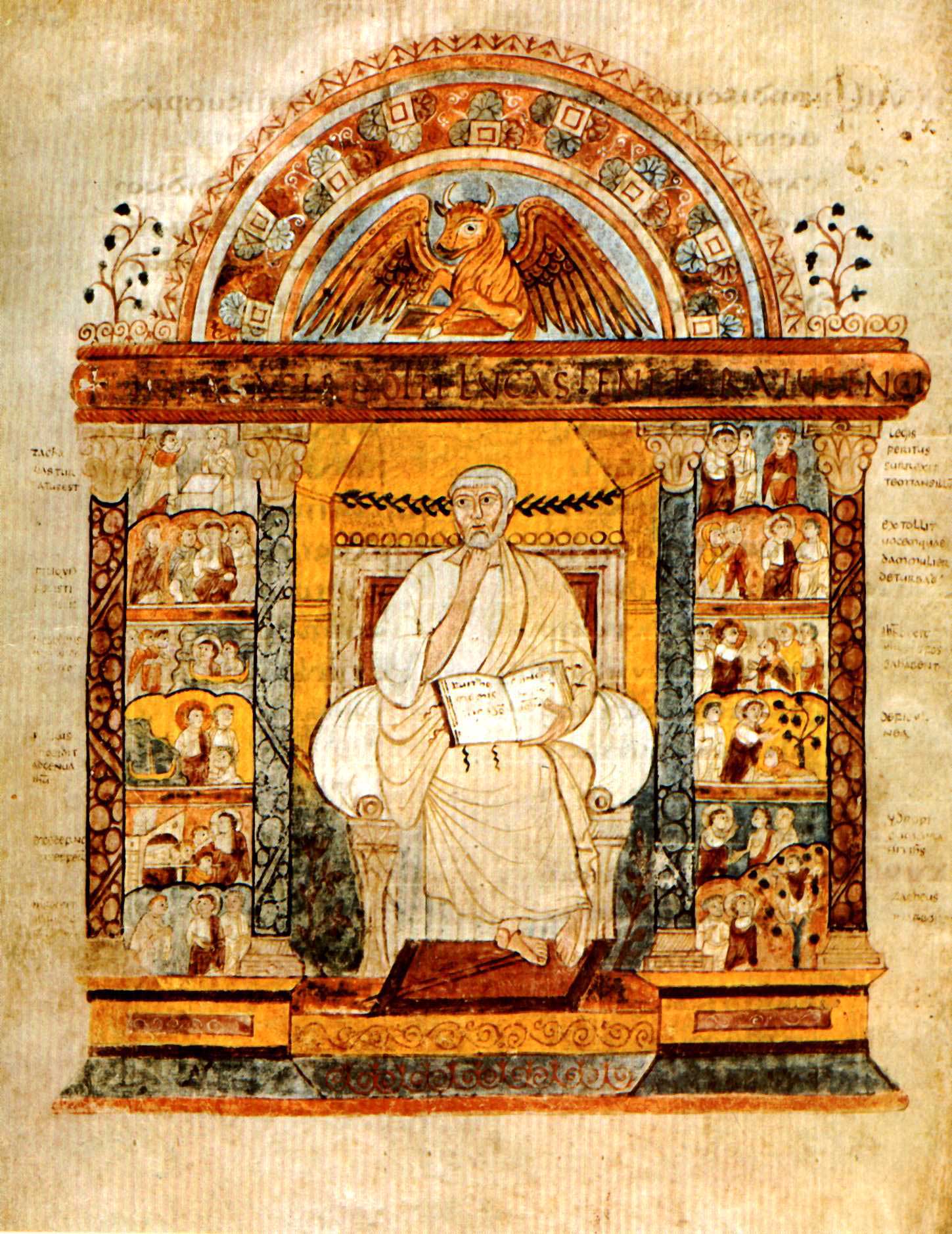The Divine Divider
Judgment & the Meaning of “Emmanuel” in Matthew’s Gospel
by Addison H. Hart
When, during the seasons of Advent and Christmas, we joyfully sing carols about the birth of “Emmanuel,” we should do so with a certain amount of trepidation. Along with the message of the comfort of his coming, we would do well to hold in mind the complementary truth of the crisis it brings.
Only in Matthew’s Gospel do we find Jesus identified with Isaiah’s prophecy of the one to be called “Emmanuel,” “God with us” (Is. 7:14; Matt. 1:23). The long-awaited Messiah would come from the royal House of David, and through him God would be present in a way hitherto unknown in the history of his covenant people. But Jesus Christ is not merely “the Son of David,” he is “God with us.”
Matthew wants his readers to grasp that in Emmanuel, “God with us,” something has occurred that is so astounding, so new, so infinitely rewarding or damning potentially for each individual, that we who profess Christ are to be judged in the light shed by this stunning revelation.
Emmanuel’s Judgment
He who is called Emmanuel is God, utterly transcendent, thus possessing the power to be present with us throughout time; he is with us, immanent, thus powerfully present in our midst every day.
This, then, is one of the real and weighty implications of “Emmanuel”: because Jesus is “God with us,” how one responds directly to Jesus Christ is of crucial and eternal importance. Judgment is implicit for one who really encounters Christ. In relation to him, each human life is potentially unfolding or withering throughout the time allotted its earthly existence, until that “day” when each soul’s implicit lifelong judgment is revealed explicitly before the throne of the Son of Man.
Judgment in Matthew is both implicit and explicit. In the story of the betrayal, trial, and death of Jesus, Matthew shows the judgments implicit in three very different individuals’ encounters with Jesus. He directs essentially the same pointed statement to each of the three, which puts each of them in the situation of pronouncing judgment upon himself, though they do not seem to realize it. In all three instances, Christ is seen to be the true Judge, hidden though this fact is beneath his weakness and suffering.
The first of the three encounters is that of Jesus with Judas at the Last Supper. Immediately before the institution of the Eucharist, Jesus foretells that one of the twelve disciples will betray him. The disciples, understandably disturbed by this, ask him one after another, “Is it I?” When Judas asks the question, the Lord responds: “You have said so” (26:20–25).
The second encounter is that with the High Priest, Caiaphas (26:57–66). Exasperated by the silence of Jesus before the Sanhedrin, Caiaphas demands of him, “I adjure you by the living God, tell us if you are the Christ, the Son of God.” Jesus’ reply is identical to the one given earlier to Judas: “You have said so.” He continues: “But I tell you, hereafter you will see the Son of Man seated at the right hand of Power, and coming on the clouds of heaven” (26:63–64). In other words, one day the tables will be turned, and Caiaphas will find himself before the true Judge—the very One he now presumes to judge.
Addison H. Hart is retired from active ministry as parish priest and university chaplain. He is the author of Knowing Darkness: On Skepticism, Melancholy, Friendship, and God and The Yoke of Jesus: A School for the Soul in Solitude (both from Eerdmans). His forthcoming book is a study of the Sermon on the Mount. He lives and writes in Norheimsund, Norway.
subscription options
Order
Print/Online Subscription

Get six issues (one year) of Touchstone PLUS full online access including pdf downloads for only $39.95. That's only $3.34 per month!
Order
Online Only
Subscription

Get a one-year full-access subscription to the Touchstone online archives for only $19.95. That's only $1.66 per month!
bulk subscriptions
Order Touchstone subscriptions in bulk and save $10 per sub! Each subscription includes 6 issues of Touchstone plus full online access to touchstonemag.com—including archives, videos, and pdf downloads of recent issues for only $29.95 each! Great for churches or study groups.
Transactions will be processed on a secure server.
more from the online archives

33.1—January/February 2020
Do You Know Your Child’s Doctor?
The Politicization of Pediatrics in America by Alexander F. C. Webster
calling all readers
Please Donate
"There are magazines worth reading but few worth saving . . . Touchstone is just such a magazine."
—Alice von Hildebrand
"Here we do not concede one square millimeter of territory to falsehood, folly, contemporary sentimentality, or fashion. We speak the truth, and let God be our judge. . . . Touchstone is the one committedly Christian conservative journal."
—Anthony Esolen, Touchstone senior editor









